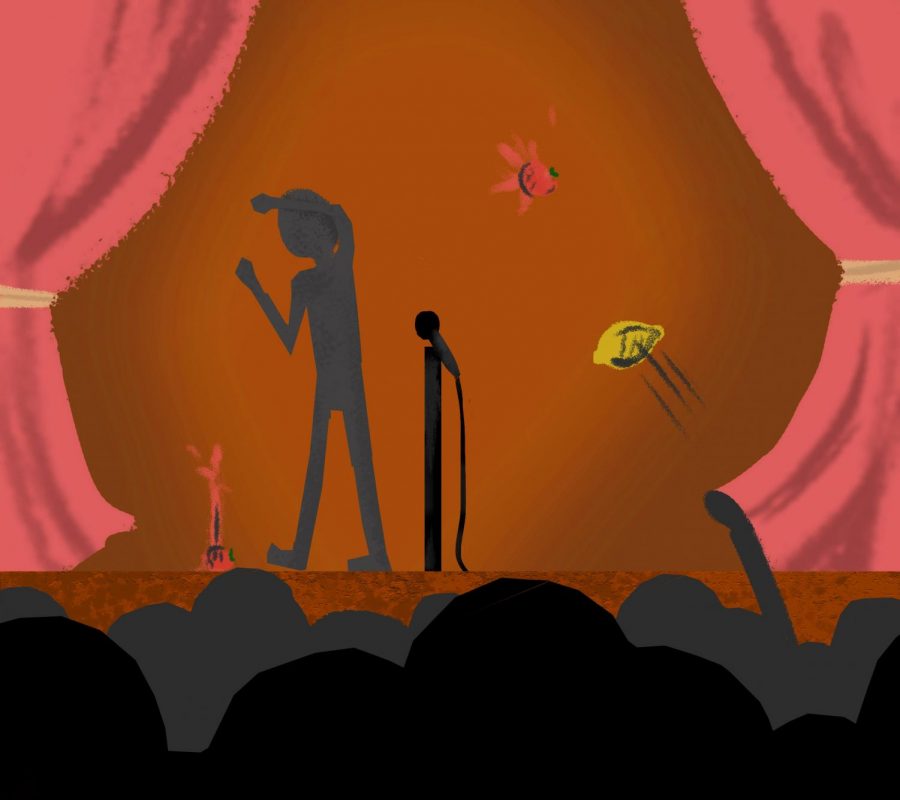The Art of Heckling
STAYING STRONG: It takes a lot of courage to present ideas in front of a receptive audience. The fear of getting heckled only adds to the lack of desire to get up on stage. It is important to remember to respect everyone when they’re taking the time to express their ideas.
June 7, 2019
While performing a set at Coachella last month, Ariana Grande was hit with a lemon by a spectator. She took it in stride, continuing her song without letting it get to her. In America, where freedom of speech is protected, actions like heckling are the norm. Musicians, comedians, singers, politicians, and anyone who has ever had to give a speech or performance has been catcalled, booed or yelled at at least once. However, junior Mateo Mendoza says, “Once people realize you’re not really the kind of person they can push around, they back off.”
Last October, famous British media personality Piers Morgan was pied in the face on live television for “emasculating papoose” tweets. (Papoose is the British term for strap on baby carriers) Opposition, which included Chris Evans and angry dads who take part in the upbringing of their children, was satisfied that he was “pie-poosed” for his ignorance. Is throwing food really the answer? Sophomore Zander Van Coevorden says, “I thought, he has some interesting opinions on a lot of things, I think he shouldn’t have been pied. He has the right to his own opinion even if it’s negative.”
The media has shown us that throwing food at people is funny. Movies like “Sky High” and “Captain America: The First Avenger” use throwing food as comedic relief. Whether it be a perfectly timed food fight or a tomato to the shield, movies consistently downplay the damaging effects of throwing food. Freshman Brogan Brown says, “It’s common in TV. I think it’s more of a joke than presenting it seriously.”
There is a huge difference between criticism and contempt and throwing food falls on the contemptuous side in probably the worst way. When we have negative opinions, they should be expressed respectfully in a way that will better not only the person we are giving feedback to, but also ourselves. Senior Sophie Lee says, “I think protesting or publishing your opinion is a valid way to express it because, especially in America, you are able to express your own opinion. If you can do it in a way that isn’t harmful or hurting others, you can make a difference without hurting anyone.” Deconstructive criticism only serves to damage people and close them off from outside opinion. By giving people our opinions in a respectful manner, we can be helpful and not harmful.



